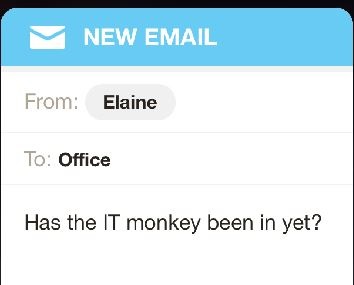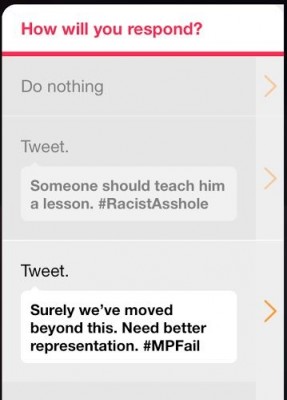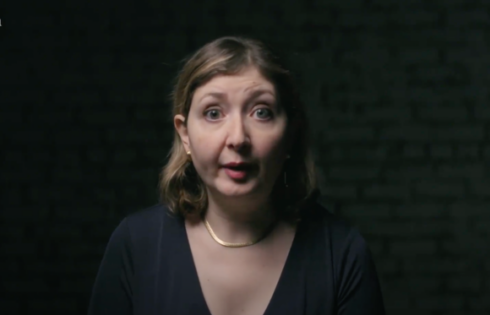
Racist? There’s an app for that.
A new smart phone application billed as the first of its kind aims to teach users how not to be racist by sending them insulting text messages and other racially charged scenarios and asking them to respond properly.
The free app, called Everyday Racism, was developed by educators at the University of Western Sydney, Deakin University and Melbourne University on behalf of All Together Now, a Sydney-based nonprofit whose sole focus is to take proactive efforts to end racist behaviors and attitudes in Australia.
This app tackles perceived racism deemed casual and subtle, thus “Everyday Racism,” and is a seven-day “game” that challenges its players to live a day in the life of an Aboriginal man, a Muslim woman, an Indian student, or as themselves, according to its creators.
Users must decide how to respond to taunting text messages, videos of discriminatory actions, and verbally abusive voice messages.
For example, one of the scenarios presents two couples, one Caucasian and the other Black, who are seen giving a real estate agent a financial application for the purchase of a home. The agent ignores the Black couple and tells the Caucasian couple their application will be reviewed and likely passed.
After viewing the example, the Everyday Racism app asks users to pick from three responses: should the Caucasian couple call the real estate agent’s office and make a complaint; should they do nothing; or should they interrupt the agent and say: “I like this place, but this couple might have questions.”
In another example, a fake Facebook post pops up on the app saying something along the lines of: “I’m all for boosting indigenous numbers on campus – took ages to get our table cleared at lunch today. LOL”
The post implies indigenous people, also known as Aborigines, are only good for clearing tables. Users are again given a series of responses from which to choose.
In a third example, a fake video news feed appeared on the app, ostensibly taking a swipe at the country’s prime minister, implying the politician was racist for worrying about immigration from Muslim countries.
It went something like this: “Due to recent events in Europe, I think we need to reconsider migration from Islamic countries.”
The user is then supposed to choose from three replies: do nothing after watching the video; tweet out a threat such as “someone should teach him a lesson.” #RacistAsshole; or send a tweet saying: “surely we’ve moved beyond this. Need better representation.” #MPFail.
All Together Now’s Managing Director Priscilla Brice told The College Fix that racism can be insidious, so this application teaches users where and how to spot it and react to it.
“Racist attitudes are often expressed in subtle ways, which makes it harder to confront,” she said in an email.
The app sends about five different scenarios daily during the seven-day game, and is described online as a chance to walk in someone else’s shoes and “test your own limits and overcome your fears of speaking up.”
“A group of 8 panelists from diverse ethnicities have been consulted to make sure the app would be based on real-life experiences of everyday racism,” the website states.
The All Together Now group, along with creating the Everyday Racism app, also advocates for sweeping changes to Australia’s longstanding anti-discrimination laws. The newest iteration of the law would, essentially, forbid certain forms of speech as discriminatory and harassing.
To wit, anyone caught making demeaning or offensive comments to another person based on that person’s ethnic makeup would be subject to prosecution.
Australia’s free speech advocates suggest that these new changes would put a chilling effect on freedom of expression and speech in Australia.
Institute of Public Affairs Research Fellow Christopher Berg writes, in an opinion piece for Australia’s Drum TV, “if the bill goes through the Parliament, it will be unlawful to treat someone unfavourably by offending or insulting them because of their political opinions, industrial history, or social origin in any work-related area.”
Berg went on to say that all political opinions are, to some extent, offensive; politics is about controversy.
He also chastises groups like All Together Now, among others, that try to push sweeping, comprehensive changes to the country’s discriminatory laws, saying they want to make it illegal to say controversial comments.
College Fix contributor Christopher White is a University of Missouri graduate student and an editorial assistant for The College Fix.
IMAGE: A2Gemma.Flickr …
Inside Images: Screenshots from Everyday Racism app




Please join the conversation about our stories on Facebook, Twitter, Instagram, Reddit, MeWe, Rumble, Gab, Minds and Gettr.